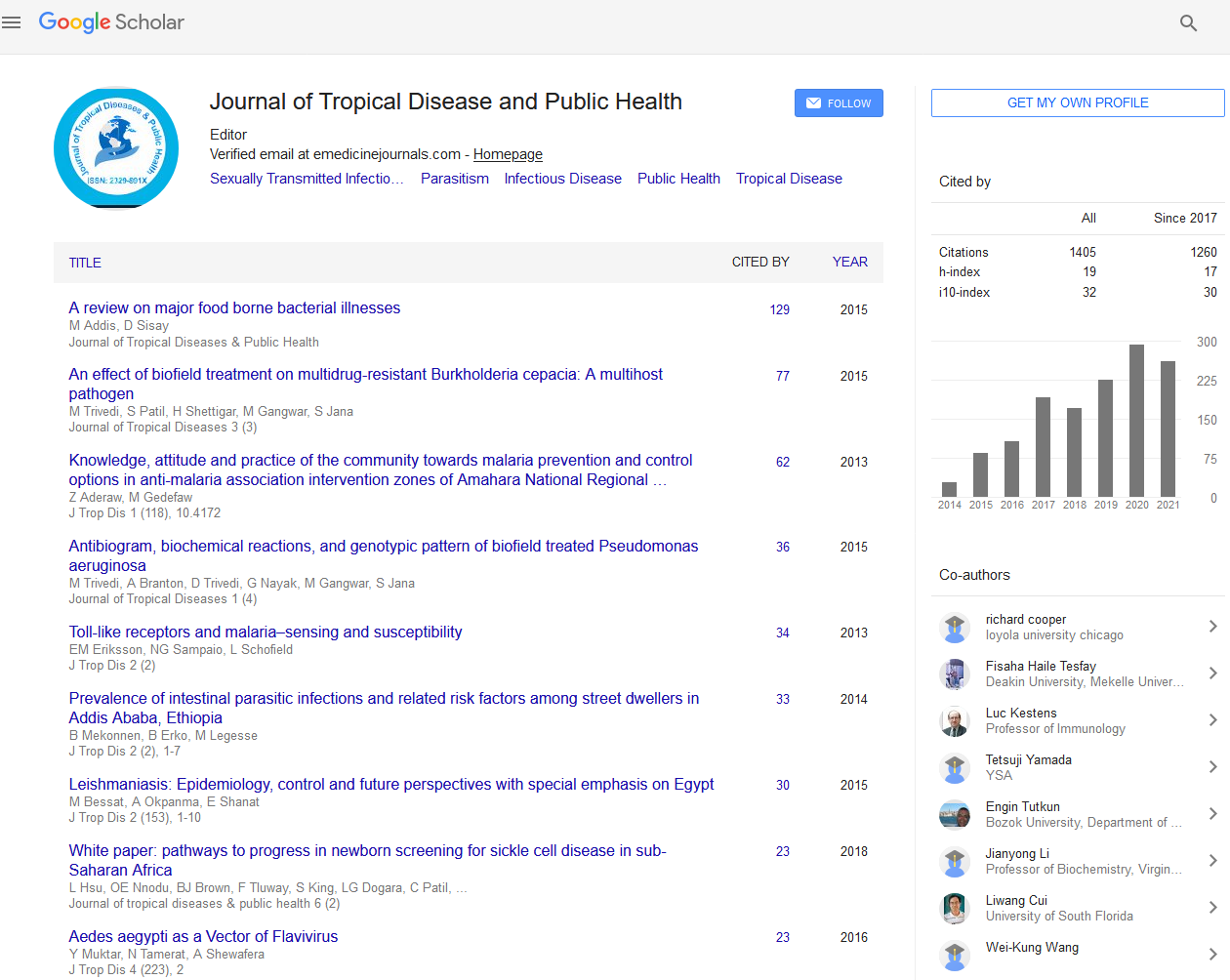Indexed In
- Open J Gate
- Academic Keys
- ResearchBible
- China National Knowledge Infrastructure (CNKI)
- Centre for Agriculture and Biosciences International (CABI)
- RefSeek
- Hamdard University
- EBSCO A-Z
- OCLC- WorldCat
- CABI full text
- Publons
- Geneva Foundation for Medical Education and Research
- Google Scholar
Useful Links
Share This Page
Journal Flyer

Open Access Journals
- Agri and Aquaculture
- Biochemistry
- Bioinformatics & Systems Biology
- Business & Management
- Chemistry
- Clinical Sciences
- Engineering
- Food & Nutrition
- General Science
- Genetics & Molecular Biology
- Immunology & Microbiology
- Medical Sciences
- Neuroscience & Psychology
- Nursing & Health Care
- Pharmaceutical Sciences
Abstract
Dengue viruses and envelope protein domain III-based vaccine candidates
Hossein Fahimi
Dengue viruses are mosquito-borne pathogens belonging to Flaviviridae family which are transmitted to human via the bites of infected mosquitoes. More than 2.5 billion people are living in the area with risk of dengue infection. This virus cause dengue fever, dengue hemorrhagic fever, and dengue shock syndrome. Although, all four serotypes of dengue virus are infectious for humans, but the manifestations are slightly diverse depending on the virus serotype. Primary immunity with one serotype is life-long immunity against the same serotype but is not cross-protective against the other serotypes, even may boost the severity of a secondary heterotypic infection via antibody-depended enhancement (ADE) mechanism. Envelope protein (E protein) of dengue virus is essential for binding to host cell receptors and fusion to and entry into host cells. E protein whit three domains, enhances host immunity responses by inducing neutralizing antibodies and domain-III of protein plays a fundamental role in this process. Hence, domain-III of the E protein is a useful antigen for design and production of recombinant proteins for development new vaccines and diagnostic kits. Here, I have presented a brief review of dengue vaccine strategies with emphasizing on a newly developed envelope domain III-based dengue vaccine candidate (ED3-tetravalent protein). Design, expression, and immunogenicity of ED3-tetravalent protein are explained and the results suggested that this tetravalent antigen can enhance neutralizing immunogenic response against all four dengue serotypes.
Published Date: 2020-08-28;


